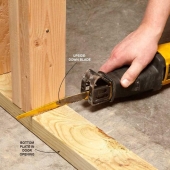My grandfather has lived in the same house for some 85 years. In the back is a HUGE field but way at the top, a tree. He has lived there so long that he noticed where the moon is in relation to the tree on winter solstice can determine how warm or cold the winter will be. He is not wrong. The moons distance from the earth determines tides, and tides determine winds and winds determine weather.
I am not so astute, but I have learned some things myself over the years. In a VERY broad form, if the skies look ominous, ominous weather is coming. Not might arrive, could arrive, should arrive but WILL arrive!
Rain before seven, stops before eleven. I have never seen this not to hold true, which also means rain at 4 AM, it is going to rain for most of the day.
If the wind is strong enough to flip the leaves over on hardwoods, it is going to rain within a half-hour. Part of it has to do with the strength of the wind, but also too the air pressure which is inverted and suddenly allows the leaves to flip over easier.
A mottled pink sunrise is absolutely beautiful, but watch out. A severe storm will arrive the next day.
Here in Maine, if ponds are dry in the fall, they will be filled in the spring, meaning heavy snowfall for the winter. If ponds are full in the fall, they will be about as full in the spring, meaning no snow melt run-off so a less severe winter. I have never seen this not to hold true.
My birthday is on May 8th. I have yet to see a year when tractors started plowing before my birthday. I have thought many years it was going to happen, but some major weather event has always sprung up and the tractors had to stay off the fields until after my birthday.
Like my birthday, here in Maine you can count on putting your livestock on pasture on the second week of April. It may seem that will never happen with too much snow or whatever, but high temps have always allowed the grass to grow enough to allow grazing to happen.
Despite the above, we always get one plowable snowstorm the first of April. The snow never lasts. Lands and is melted the next day, but we always get one last plowable snowstorm in April.








